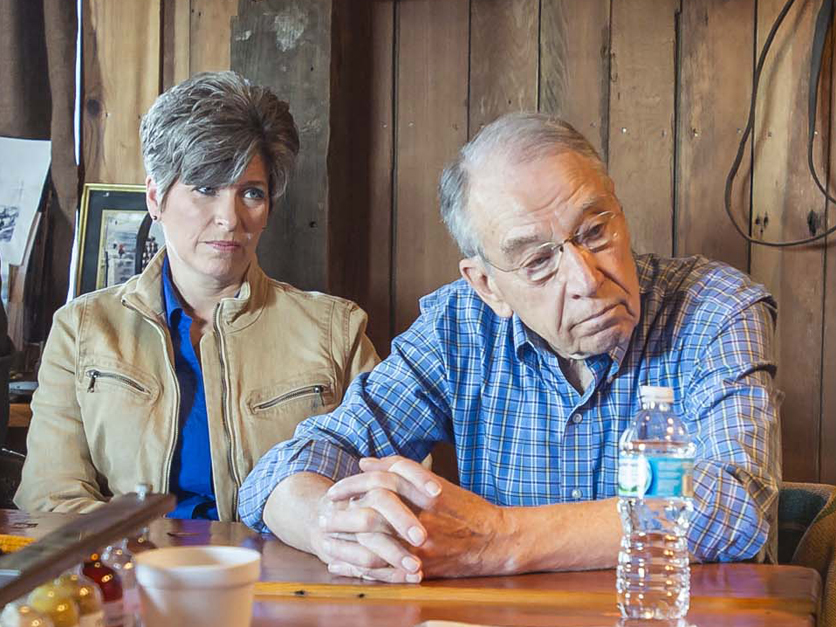Two upper Midwest senators are pushing the Federal Energy Regulatory Commission (FERC) to consider regulatory options to prioritize pipeline shipments of propane to northern states as farmers and manufacturers struggle to find propane.
Republican Sens. Joni Ernst and Chuck Grassley of Iowa wrote a letter to FERC Monday saying they’ve been hearing from Iowa farmers about the insufficient supply of propane needed to dry grain, heat homes and livestock barns, and run businesses.
“We understand the nationwide supply of propane is adequate, but it is not in Iowa,” the letter reads. As farmers face trade disputes and a late harvest this year, the propane shortage only “compounds frustration and financial struggles,” they added.
Northern Iowa corn and soybean producer Denny Friest told Agri-Pulse it takes him a week to get a day's worth of propane.
“We’ll get enough to run the dryer for a day and a half, then we have to wait until there’s more available because we’re all proportioned out so everyone gets treated the same,” he said.
When asked how much longer he would be harvesting, Friest responded, “I could be done in 4 days if I had propane.” Friest is normally done with corn harvest by now, but 25% of his corn crop is still standing in the field.
As of November 12, Iowa corn farmers had harvested 64% of their crop compared to 81% this same time last year. Moisture content of field corn being harvested in some locations was at 20% last week, according to the Iowa Department of Agriculture and Land Stewardship.
“I would be shocked if there isn’t still corn out there late into the year,” Kevin Ross, a southwest Iowa producer and president of the National Corn Growers Association, told Agri-Pulse. He said it could be because farmers are waiting on propane or some producers could be leaving corn out to dry down a few more percentage points.
Sarah Reboli, deputy counsel for the National Propane Gas Association told Agri-Pulse there is no shortage of propane in the U.S., the problem revolves around transportation.
“Major pipelines are transporting not just propane but other commodities,” Reboli said. “Pipeline companies also have to abide by specific contracts and regulations while also having to divide pipeline capacity in a fair way.” She noted trying balance capacity to meet the needs of everyone is delicate.
Agricultural marketing consultant Ken Eriksen said several weather signals and other steps could have prevented the current propane shortage in northern states.
“We saw the floods, we saw the crop going in late, and we had all summer of people talking about we’re going to have a late harvest as a result,” Eriksen told Agri-Pulse.
By looking at past data trends and the calendar, companies could have explored what it would have taken to get adequate supplies to specific areas ahead of time, he said.
When asked if the problem could have been prevented, Reboli said NGPA had been watching the growing season since the spring but cited unknowns. Would the crops make it through the season along with several cold snaps and were yields actually there?
On Friday, Iowa Gov. Kim Reynolds issued an emergency declaration easing oversize load requirements for haulers carrying propane. Several other states, including Illinois, Minnesota, North Dakota, South Dakota, Wisconsin, and Indiana — have also issued emergency declarations due to the shortage of available propane.
Reboli noted moving forward, all stakeholders, including pipelines, haulers, consumers, and farmers, need to investigate how resources could be more efficiently used to store the product and provide more movement.
For more news go to www.Agri-Pulse.com.



